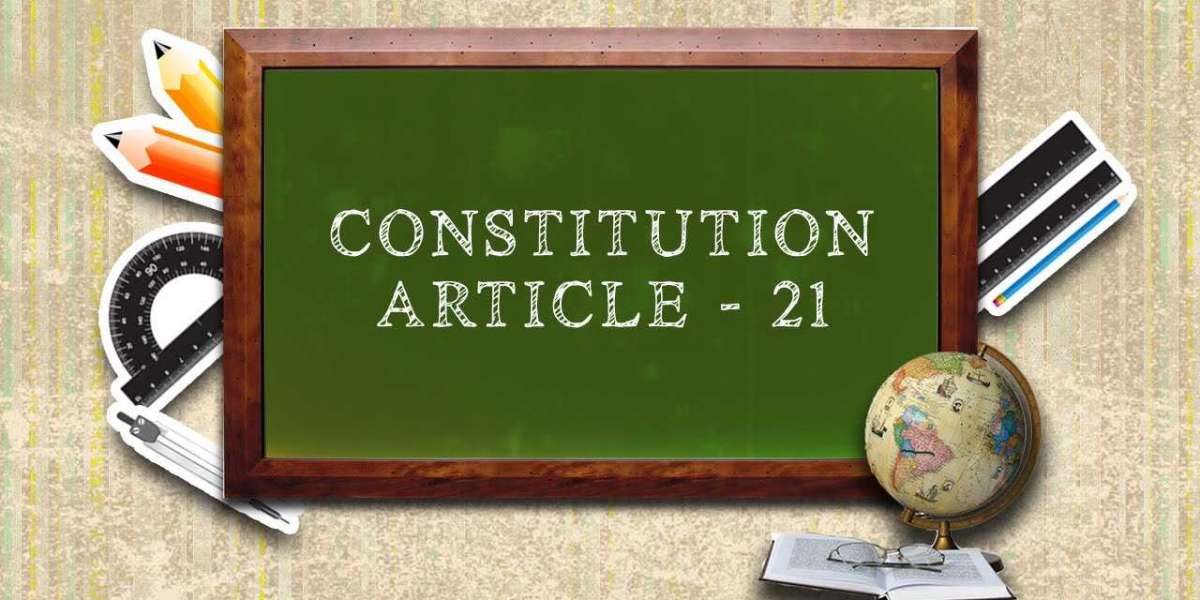The Indian constitution is a mixture of different and versatile concept taken from other constitutions of the world. it is said to be the longest constitution in the world. It is said to be the supreme law or law of the land. The Indian Constitution also known as Bhartiya Samvidhan list down the framework demarketing fundamental political code, structure, procedures, powers and duties of government institutions and set about fundamental rights and directive principles. BR Ambedkar chairman of the drafting committee is widely considered to be its chief architect. One of the most liberating and empowering rights according to me is “ the right to life and personal liberty” It is given in Article 21 of the Indian Constitution which states that “no person shall be deprived of his life or personal liberty except according to procedures established by law” This right is basically available to every person whether it is the citizen of India or not a citizen of India. Thus, a foreigner can also clean this right however it does not in title of foreigner the right to decide and settle in India as mentioned in Article 19 (1) (e). Hindi article 21 life does not merely means physical act of breathing it does not Connote new animal existence or continued drudgery through life. It has much wider meaning which includes right to live with human dignity right to livelihood right to health right to pollution etc. Right to life is fundamental to our very existence without which we cannot live as a human being and includes all the aspects of life which would to make a man’s life meaningful complete and worth living. it is the only article in the Constitution that has received the widest possible interpretation. In the case of Kharak Singh v. State of Uttar Pradesh, the supreme court quoted,
By the term 'life' as here used something more is meant that animal existence. The inhibition against its deprivation extends to all those limbs and faculties by which life is enjoyed. The provision equally prohibits the mutilation of the body by amputation of an armoured leg or the pulling out of an eye on the destruction of any other organ of the body through which the soul communicates with the outer world. Right To Live with Human Dignity
In Maneka Gandhi v. Union of India, the Supreme Court gave a new dimension to Art. 21 and held that the right to live is not merely a physical right but includes within its ambit the right to live with human dignity. Elaborating the same view, the Court in Francis Coralie v. Union Territory of Delhi observed that:
“The right to live includes the right to live with human dignity and all that goes along with it, viz., the bare necessities of life such as adequate nutrition, clothing and shelter over the head and facilities for reading writing and expressing oneself in diverse forms, freely moving about and mixing and mingling with fellow human beings and must include the right to basic necessities the basic necessities of life and also the right to carry on functions and activities as constitute the bare minimum expression of human self.”
Another broad formulation of the theme of life to dignity is to be found in Bandhua Mukti Morcha v. Union of India. Characterizing Art. 21 as the heart of fundamental rights, the Court gave it an expanded interpretation. Bhagwati J. observed:
“It is the fundamental right of everyone in this country… to live with human dignity free from exploitation. This right to live with human dignity enshrined in Article 21 derives its life breath from the Directive Principles of State Policy and particularly clauses (e) and (f) of Article 39 and Articles 41 and 42 and at the least, therefore, it must include protection of the health and strength of workers, men and women, and of the tender age of children against abuse, opportunities and facilities for children to develop in a healthy manner and in conditions of freedom and dignity, educational facilities, just and humane conditions of work and maternity relief.
“These are the minimum requirements which must exist in order to enable a person to live with human dignity and no State neither the Central Government nor any State Government-has the right to take any action which will deprive a person of the enjoyment of these basic essentials.”
Following the above-stated cases, the Supreme Court in Peoples Union for Democratic Rights v. Union of India held that non-payment of minimum wages to the workers employed in various Asiad Projects in Delhi was a denial to them of their right to live with basic human dignity and violative of Article 21 of the Constitution. Right to privacy and subjecting a person to medical tests
It is well settled that the right to privacy is not treated as absolute and is subject to such action as may be lawfully taken for the prevention of crimes or disorder or protection of health or morals or protection of rights and freedom of others. In case there is a conflict between the fundamental rights of two parties that which advances public morality would prevail.
A three-judge bench in case of Sharda v. Dharmpal ruled that a matrimonial court had the power to direct the parties to divorce proceedings, to undergo a medical examination. a direction issued for this could not be held to the violative of one’s right to privacy but court, however, said that for this there must be a sufficient material.







